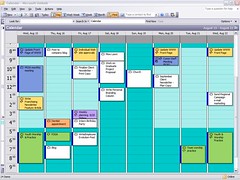I don’t openly discuss the fact that I’m a tree hugger because it makes people uncomfortable. See, Mother Nature reminds us a lot of our own mother; we believe they’ll always be there for us no matter what. So I don’t talk about being an environmentalist. It would be like reminding the other person that they haven’t called their mom for two weeks. And no one wants to be reminded of their mother during happy hour.
That’s a mistake, however, because I get miffed when others claim to be environmentally concerned, and are blatantly not. Like the people who shop at Whole Foods, and think that gets them a golden ticket to the garden of earthly delights, even though they have a SUV parked in the lot. You may be one of those people. That’s okay. Just stop saying you care about the environment. Because you don’t.
Don’t act like somebody you’re not. It’s annoying. It’s frustrating. People will see through it, and you will have no credibility. The most powerful brands don’t have to broadcast themselves. They are simply true by example.
Besides, it makes your life harder to keep up an image that’s not authentic. You spend a lot of time doing a lot of things to convince a lot of people that you’re something, something big, something that you’re not. That’s depressing.
You may recycle every water bottle or take an entire morning to replace all of your light bulbs with compact fluorescents. Worthy steps, sure. But they’re high-input and low-value. Like, none of those steps will land you in bed with Leonardo DiCaprio.
If you’re going to define yourself a certain way, then go for it. Use meaningful action. Don’t waste your time on little things that provide little value according to your goal. Set priorities to create the most impact, and avoid getting mired in the insignificant.
Environmental products often cost more in the beginning, but pay off in the long run. That’s how life is. It’s going to be hard in the beginning to take the first big step after years of baby steps. Your legs won’t seem long enough. But you have to stretch yourself beyond your limits. It’s worth it. Anything less isn’t authentic.
I’m an environmentalist because I don’t own a car. I don’t waste time worrying about recycling every single piece of junk mail. I don’t feel guilty for not going to the Farmer’s Market every Saturday morning. I’ve already done the biggest thing you can do for the environment. I don’t own a car. The positive impact of that decision is so huge, that while I do the small stuff, I don’t sweat it. I’ve got my golden ticket.
Small steps are a good start, but when you’re ready to play with the big kids, you just have to commit. Going any slower would be painful. Sometimes you just have to rip off the band-aid.



 Gen-Y does a heck of a lot. This is the first post in a new series called, “Follow the Leader,” where you get the chance to peek into the professional and personal lives of fellow young leaders to learn how they get it all done. If you would like to be the next young leader profiled,
Gen-Y does a heck of a lot. This is the first post in a new series called, “Follow the Leader,” where you get the chance to peek into the professional and personal lives of fellow young leaders to learn how they get it all done. If you would like to be the next young leader profiled, 
